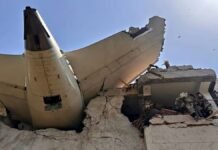
Key Points
- Air India is reducing international flights on widebody aircraft by 15% until at least mid-July following a deadly Dreamliner crash.
- 83 international flights have been canceled in just six days due to ongoing safety inspections, technical issues, and airspace restrictions.
- Enhanced safety checks are underway for both Boeing 787 and 777 fleets, with 26 of 33 Dreamliners cleared for service so far.
- Passengers affected by cancellations are being offered full refunds or complimentary rescheduling.
- The Directorate General of Civil Aviation (DGCA) has found no major safety flaws but flagged maintenance and coordination gaps.
New Delhi: Air India has announced a significant 15% reduction in its international widebody flight operations through at least mid-July, following the devastating crash of a Boeing 787 Dreamliner on June 12 that killed over 240 people. The Tata Group-owned airline is undertaking sweeping safety measures, including enhanced inspections of its Boeing 787 and 777 fleets, as it navigates a period of intense scrutiny and operational disruption.
Safety Inspections and Flight Cancellations
Since the crash, Air India has canceled 83 widebody international flights in just six days, with 66 of those involving Boeing 787 aircraft. The cancellations have affected major routes connecting India with London, Paris, Vienna, Dubai, and Toronto. The airline attributes these disruptions to a combination of factors: ongoing safety evaluations, technical issues, airspace restrictions in Europe and the Middle East, and challenging weather conditions.
As of June 18, enhanced safety inspections mandated by the DGCA have been completed on 26 of Air India’s 33 Dreamliners, with the remaining aircraft expected to be cleared in the coming days. The airline is also conducting additional checks on its Boeing 777 fleet as a precaution.
Recent Flight Disruptions
On Wednesday alone, Air India canceled three international flights due to maintenance and technical issues, including the Toronto-Delhi (AI188) and Dubai-Delhi (AI996) routes. In two cases, passengers had already boarded before being asked to disembark following the cancellations. Another flight, Delhi-Bali (AI2145), was forced to return to Delhi mid-air due to volcanic activity near Bali airport, with all passengers safely deplaned.
The airline’s Mumbai-Lucknow flight was also abruptly canceled after a diversion caused by heavy rains in Delhi, while several other flights experienced significant delays due to operational challenges.
Regulatory Oversight and Passenger Support
India’s aviation regulator, the DGCA, has found no major safety concerns with Air India’s Boeing 787 fleet but has highlighted gaps in maintenance and internal coordination. The regulator has directed Air India to improve compliance, ensure better communication with passengers, and maintain adequate spare parts to minimize future delays.
To support affected travelers, Air India is offering full refunds or complimentary rescheduling for canceled flights and is working to arrange alternate travel as quickly as possible.
Industry Impact and Outlook
Aviation analysts see the current crisis as a temporary setback for Air India, which is in the midst of an ambitious transformation under Tata Group ownership. The airline has placed substantial orders for new aircraft and is focused on restoring passenger confidence and operational reliability.
The investigation into the June 12 crash is ongoing, with authorities analyzing flight data and maintenance records to determine the cause. In the meantime, Air India is prioritizing safety and operational stability as it works to overcome this unprecedented challenge.
















































